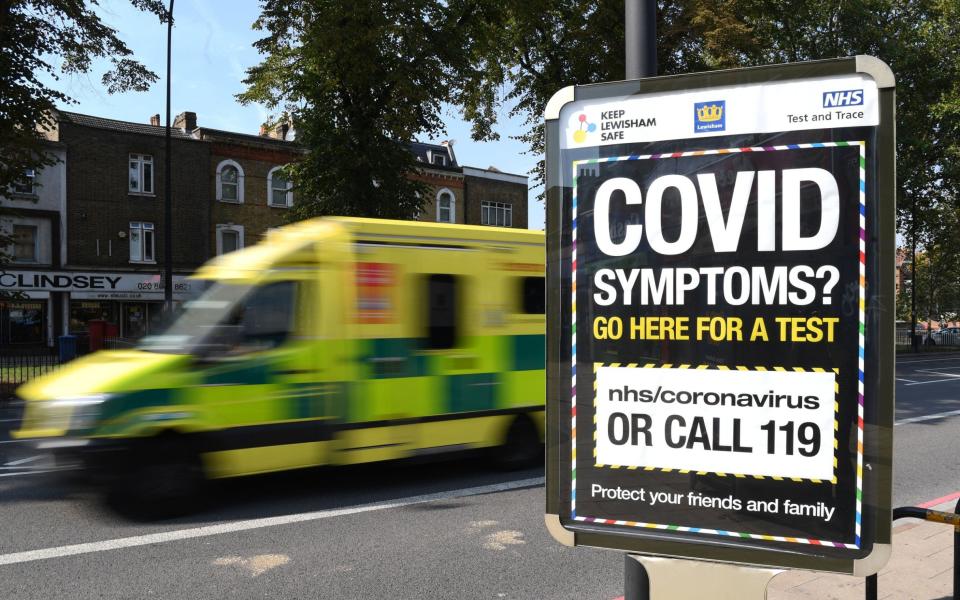Government urged to 'pause' new restrictions as cases of Covid caught in hospital soar


Imposing more new coronavirus restrictions would be "too hasty", scientists have said after figures revealed that up to a quarter of patients currently in hospital with Covid-19 caught the virus after being admitted.
Leading statisticians called on the Government to "pause", having shown that a significant proportion of the escalating hospital case total is down to poor Covid security within trusts.
Across England as a whole, 18 per cent of patients in hospital with Covid-19 tested positive for the virus for the first time seven days or more after admission. The proportion was highest – at 24 per cent – in the North-West, which is under imminent threat of further lockdown measures.
The rising number of hospitalised Covid-19 patients in the region was referred to by Matt Hancock, the Health Secretary, as he talked about possible new restrictions this week.
It comes amid growing concerns that the NHS has failed to learn lessons from the first wave of the pandemic about high levels of transmission within hospitals.
The percentage of probably healthcare associated infections (HCAIs) appears to be as bad, if not worse, than that recorded during the height of the first wave. This is despite an order from Sir Simon Stevens, the NHS England chief executive, for hospitals to improve their Covid security in June.

Professor Carl Heneghan, who led the new analysis at the University of Oxford, said many of the new hospital cases could be elderly people who had been admitted for other conditions.
"I think this shows it's too early and too hasty to reach for more restrictive measures. We've got a lot of measures in place already," he told The Telegraph. "Once you start to get into the data, it's not as simple as cases rising or hospitals admissions rising. This shows there is a significant problem with healthcare-acquired infections."
Prof Heneghan's analysis derives from a new data stream released by the NHS which denotes when hospital inpatients first tested positive for Covid-19 – either before admission, upon admission or seven days or more after admission.
Those testing positive for the first time a week or more after arriving are assumed to have caught the virus in hospital.
Since September 15 – the first day since spring on which there were more than 150 admissions – and September 30 there were only three days when hospital-acquired cases amounted to 10 per cent or more of inpatient Covid cases.
However, the proportion has stayed above 10 per cent from September 30 to October 6.
"This indicates that we should be thoughtful and analytical," said Prof Heneghan. "We should wait to see what happens over the next week. We might find the measures we have got in place are having an effect, but we run the risk of losing the trust of the population if we rush in hastily with more measures."

A three-tiered "traffic light" system for local lockdowns is expected to be announced shortly. It could see large areas of the North placed under further restrictions, including the closure of pubs and restaurants and a ban on overnight stays.
On Wednesday, Mr Hancock described this week as "a perilous moment in the course of the pandemic".
"I am very worried about the growth in the number of cases, especially in the North-West and North-East of England, and parts of Wales, Scotland, Northern Ireland and parts of Yorkshire,” the Health Secretary said.
An NHS spokesman said: "As ONS and other data conclusively demonstrate, the root cause of rising Covid infections and hospitalisations across the North-West is rising community transmission, not nosocomial acquisition.
"Hospitals are asked to rigorously follow regularly updated guidance on infection prevention and control and unsurprisingly, nosocomial numbers have tended to track increases in local community prevalence."

 Yahoo Movies
Yahoo Movies 